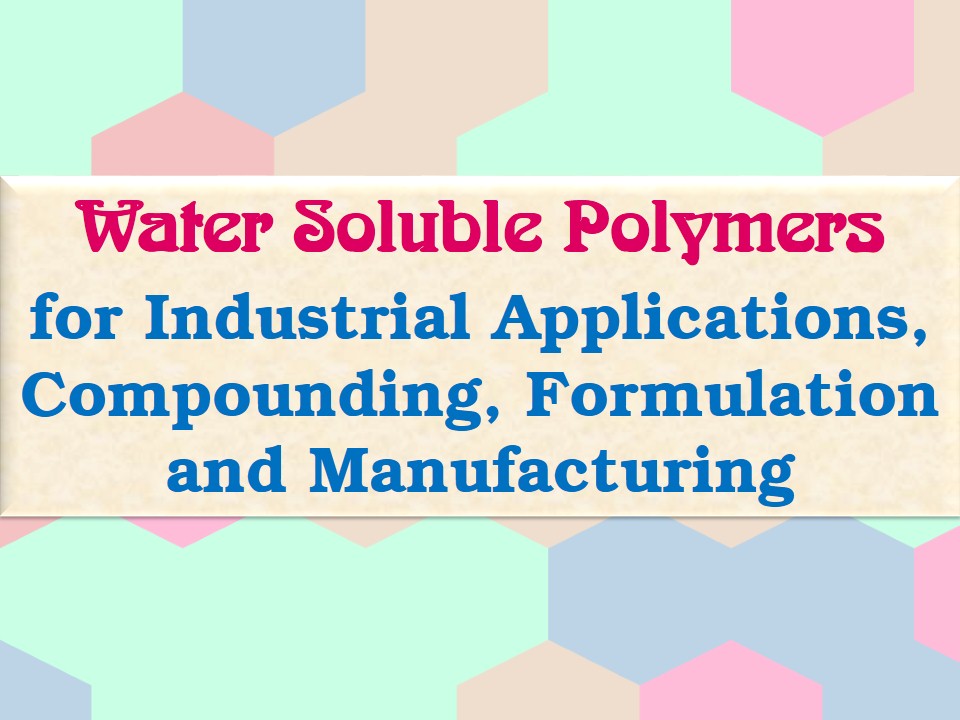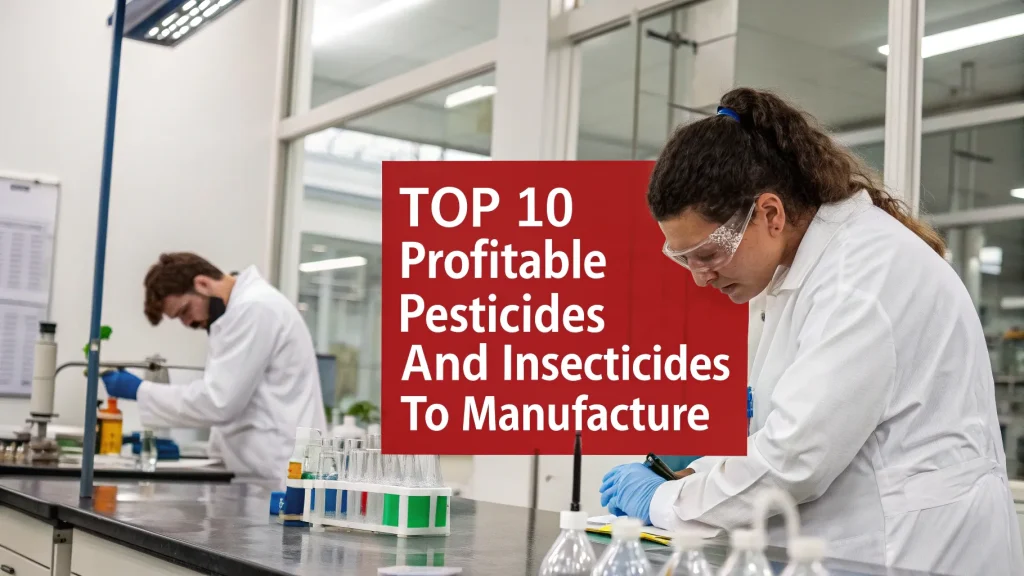
Water-soluble polymers have been widely adopted across numerous industries due to their versatile characteristics. These polymers, which dissolve, disperse, or swell in water, are utilized in various sectors such as pharmaceuticals, agriculture, food processing, textiles, and water treatment. Because of their high efficiency and eco-friendly profile, their production has gained considerable momentum in both large-scale and small-scale manufacturing units.
Hence, the demand for water-soluble polymers has been steadily increasing. In order to meet the rising consumption, businesses and entrepreneurs have started exploring investment opportunities in this sector. Before initiating water-soluble polymer manufacturing, it is crucial that the process, raw materials, applications, and formulations be understood thoroughly.
Understanding Water-Soluble Polymers
Water-soluble polymers are long-chain molecules that can interact with water through hydrogen bonding. When added to water, they modify the viscosity, stability, or other functional properties of the solution. Because of their ability to function as thickening agents, stabilizers, emulsifiers, film formers, and binders, their use in industrial and commercial applications has grown.
See Also : Artificial Sand Manufacturing Plant
Natural water-soluble polymers such as starch, gelatin, and cellulose derivatives have been used traditionally. However, synthetic polymers like polyacrylamides, polyvinyl alcohol (PVA), and polyethylene oxide (PEO) have also been developed to meet specific industrial needs.
Water-Soluble Polymer Manufacturing Process
The manufacturing of water-soluble polymers involves a series of chemical and mechanical steps. The raw materials must be carefully selected based on the end-use application. Moreover, controlled conditions of temperature, pH, and catalysts are necessary for achieving high-quality results.
Raw Materials Used
Several raw materials are typically used depending on the polymer type. Some of the commonly utilized materials include:
-
Acrylamide
-
Acrylic acid
-
Vinyl acetate
-
Ethylene oxide
-
Polyvinyl alcohol
-
Carboxymethyl cellulose
-
Xanthan gum
For synthetic polymers, monomers such as acrylamide or acrylic acid are often chosen. In contrast, for natural polymers, plant-derived cellulose or starch is employed.
Polymerization Methods
In water-soluble polymer manufacturing, various polymerization methods are applied, depending on the physical characteristics desired. These include:
-
Solution Polymerization: This method is preferred when both the monomer and the polymer are soluble in the solvent, typically water. A water-soluble initiator is used to begin the polymerization process. Hence, this method is suitable for high-purity applications.
-
Inverse Emulsion Polymerization: In this technique, water-in-oil emulsions are created where the water-soluble monomers are present in the aqueous phase. Although this method requires careful emulsifier selection, it is ideal for producing high-molecular-weight polymers.
-
Suspension Polymerization: This technique involves dispersing the monomer in water using a stabilizer. Although primarily used for water-insoluble polymers, modified systems have allowed some water-soluble versions to be produced.
-
Graft Copolymerization: In this method, natural polymers like starch or cellulose are modified by grafting synthetic monomers onto their backbone. As a result, customized functional properties are obtained.
Processing Steps
Once the polymerization is completed, the polymer is separated, purified, and dried. Additionally, neutralization or pH adjustment is carried out based on the product requirements. Final granulation, grinding, and packaging are done using automated systems.
Formulations of Water-Soluble Polymers
Water-soluble polymers are formulated based on their specific application. A few general formulations are shared below for reference:
1. Polyacrylamide-Based Flocculant
-
Acrylamide: 30–50%
-
Deionized Water: Balance
-
Initiator (e.g., APS/TEMED): 0.1%
-
Stabilizer: 0.5%
This formulation is typically used in wastewater treatment.
2. PVA-Based Adhesive
-
Polyvinyl Alcohol (PVA): 15%
-
Water: 84%
-
Plasticizer (e.g., glycerol): 1%
This blend finds use in packaging, textiles, and paper processing.
3. Carboxymethyl Cellulose (CMC) Slurry
-
CMC Powder: 5%
-
Water: 94%
-
Preservative: 1%
This formula is used in food processing and detergents.
Each formulation must be tailored according to the viscosity, pH, and solubility required for the final product. Therefore, laboratory-scale testing is always recommended before initiating commercial production.
Applications of Water-Soluble Polymers
Water-soluble polymers are applied in numerous industries due to their broad range of functions. Therefore, it is important to understand which applications align with each polymer type.
1. Wastewater Treatment
Flocculation and coagulation are supported by polymers such as polyacrylamide. Contaminants are removed effectively, thereby reducing turbidity and sludge.
2. Textile Industry
Sizing, printing, and finishing operations use carboxymethyl cellulose, starch derivatives, and PVA. Due to their good film-forming and adhesion properties, quality finishes are achieved.
3. Food Processing
Thickening agents like xanthan gum and CMC are commonly used. They improve texture, moisture retention, and mouthfeel in processed foods.
4. Agriculture
Water-soluble polymers are utilized in controlled-release fertilizers, seed coatings, and soil conditioners. Polyacrylates and PVA help in improving water retention in dry soils.
5. Pharmaceuticals
Binders, disintegrants, and controlled-release agents are formulated using water-soluble polymers like HPMC, gelatin, and polyethylene glycol.
6. Detergents and Cleaning Products
Stabilization of cleaning solutions, prevention of soil redeposition, and enhancement of cleaning efficiency are made possible with polymers like CMC and polyacrylates.
Advantages of Water-Soluble Polymer Manufacturing
Several benefits have been associated with water-soluble polymer manufacturing:
-
Eco-Friendly: As water is the primary solvent, the impact on the environment is minimal.
-
High Efficiency: Only small quantities are required to achieve the desired effect.
-
Wide Application: A broad range of industries use these polymers.
-
Custom Formulations: Specific functional properties can be engineered easily.
-
Market Demand: A steady increase in global demand makes it a profitable venture.
Hence, the sector is seen as both technologically viable and economically attractive.
Challenges in Production and Market Entry
Although the advantages are numerous, certain challenges have also been observed in the manufacturing process:
-
Raw Material Availability: Some monomers are sourced globally, making cost and supply uncertain.
-
Complex Formulations: Tailored applications require extensive R&D.
-
Regulatory Compliance: Especially for food and pharma grades, certification and quality testing are essential.
-
Waste Management: Unused monomers or by-products may require safe disposal methods.
Despite these challenges, efficient process design and adherence to quality standards can lead to a successful water-soluble polymer manufacturing business.
See Also : Wall Putty Manufacturing
Conclusion
In conclusion, water-soluble polymer manufacturing has emerged as a promising opportunity in modern industrial development. Although raw materials and polymerization methods vary, the ability to tailor formulations for specific needs offers a distinct advantage. Moreover, since these polymers find applications across industries from water treatment to agriculture and pharmaceuticals, the market base is significantly broad.
Because the demand for environmentally friendly and functional additives is growing, the investment in water-soluble polymer manufacturing can be considered both sustainable and profitable. Therefore, entrepreneurs who are exploring scalable and high-demand sectors should consider this field as a compelling business prospect. By understanding processing techniques, formulations, and end-use sectors, successful entry into this industry can be ensured.





